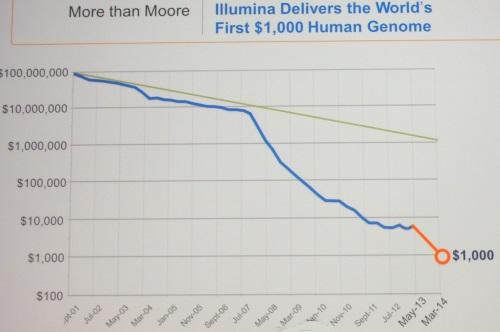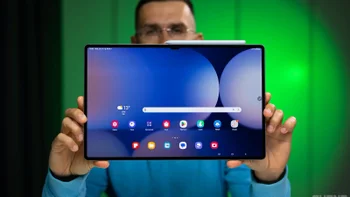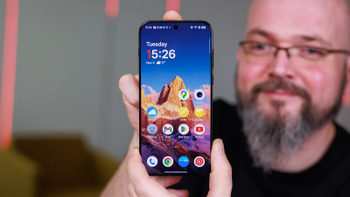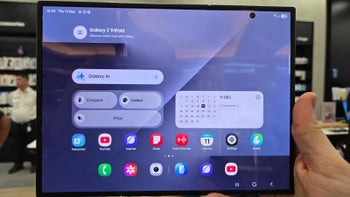Illumina is developing a smartphone chip that could replace primary doctors

I believe it will happen in five to seven years
The biggest challenge ahead of Illumina is simplifying the process of genetic sequencing. Currently, Illumina’s DNA sequencers are gigantic machines that use techinques like colorimetry to work, but while the core technology is computational, it takes some 30 steps to extract genetic data and run it through. This process will likely have to be hugely simplified on mobile devices, given the fact that some studies require extracting 10 mililiters of blood. Illumina researchers are also working on finding the optimal technology for this on-chip DNA sequencing - be it electrical, optical, or other.
After bringing down DNA sequencing to $1000 level, Illumina is turning its eye towards a consumer product - a smartphone DNA-reading chip
In other recent smartphone-related biotech news, drug company Pfizer launched its REMOTE project, a new type of clinical trial that does not require going to a hospital for checks - targeted at patients with overactive bladder problems, the FDA-approved REMOTE project allowed to gather data from patients from over 10 states remotely, via mobile devices.
The two companies join the biggest names in tech that have recently started a big effort to aggregate health and fitness data from the myriads of sensors that we’d likely be wearing soon (some of us already are). Two weeks ago, Apple unveiled its HealthKit framework that wearables can use to send data into the new Health app, and Google is also expected to launch its similar Google Fit effort at Google I/O on June 25th. Microsoft does not lag far behind and is said to be preparing its own smartwatch that can continuously measure your heart rate, but we have not heard much about Redmond implementing a framework for existing wearables.
In either case, it now seems clear that smartphones are slowly moving towards assuming the role of our primary doctor. And isn’t that what the tri-corder dream has always been about?
source: EE Times via Fierce BiotechIT
Follow us on Google News











Things that are NOT allowed:
To help keep our community safe and free from spam, we apply temporary limits to newly created accounts: